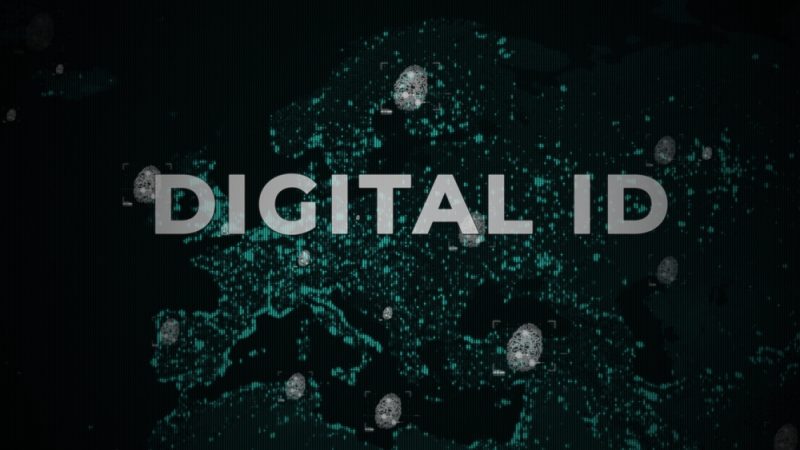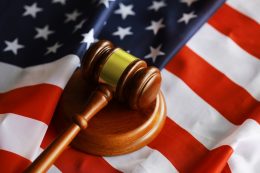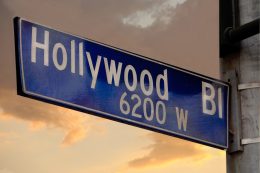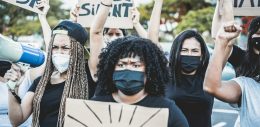Gavin Newsom has been waging war on free speech for years.
The California Governor just scored a major victory against online freedom.
And a court kept this tyrannical censorship scheme by Gavin Newsom alive.
California's Digital ID Dream Moves Forward
The Ninth Circuit Court of Appeals handed Newsom exactly what he wanted when it declined to rehear NetChoice v. Bonta on November 6.
That decision keeps California's social media law mostly intact and moves the state one giant step closer to forcing every American to show digital ID before posting online.
Senate Bill 976, which Newsom signed in September 2024, requires social media platforms to implement "age assurance" measures.
Translation: you'll need to prove who you are before you can speak freely on the internet.
That could mean uploading your driver's license, submitting to facial recognition scans, or providing credit card information just to post a comment or share an article.
NetChoice, the tech trade group challenging the law, warns this amounts to mass surveillance dressed up as child protection.
The requirements aren't active yet because California Attorney General Rob Bonta has until January 1, 2027, to finalize the specific rules.
But Bonta already started the rulemaking process in October 2025.
That gives California more than two years to perfect its surveillance system before anyone can challenge the actual implementation.
This Isn't Newsom's First Attempt At Controlling Your Speech
Newsom has been trying to control what you say online since 2022 when he signed the California Age-Appropriate Design Code.
Federal judges blocked that law and said it violated the First Amendment.
Then came multiple other attempts at age verification, each one struck down for trampling constitutional rights.
Now SB 976 is Newsom's fourth swing at forcing you to show ID before you can speak, and this time the Ninth Circuit is letting him get away with it.
The court claims it's "too soon" to determine if the age verification mandate restricts free expression before the details are set.
Read that again.
The Ninth Circuit says you can't challenge a censorship law until after the government finishes writing all the censorship rules.
By that logic, you couldn't challenge a gun confiscation law until after the state decided exactly which guns to take.
You couldn't challenge a speech code until after bureaucrats defined which words are banned.
It's backwards, and the judges know it.
The Ninth Circuit did remove one element requiring children's accounts to automatically hide likes and comments.
Judge Ryan Nelson wrote that provision "is not the least restrictive way to advance California's interest in protecting minors' mental health."¹
But the rest of SB 976, including its age verification and content feed restrictions, remains intact.
Every conservative voice on social media could soon need government permission to speak.
Tech Companies Warn Of Privacy Nightmare
NetChoice represents Amazon, Google, Meta, PayPal, Snap, and X.
The group says Newsom's law creates exactly the kind of privacy risks it claims to prevent.
"California's law usurps the role of parents and gives the government more power over how legal speech is shared online," Paul Taske, Co-Director of the NetChoice Litigation Center, explained. "By mandating mass collection of sensitive data from adults and minors, it will undermine the security and privacy of families, putting them at risk of cybercrime such as identity theft."²
Your family photos, your political opinions, your private messages — all tied to a government database of verified identities.
What Newsom's Surveillance State Actually Looks Like
Think about what's actually happening here.
California wants tech platforms to collect sensitive personal data from every user to verify their age.
That means storing the kind of information identity thieves dream about: government IDs, biometric data, birth certificates.
All of this gets handed over to companies that already have terrible track records protecting user data.
Facebook got hacked and exposed 533 million users' personal information in 2021.
Twitter's data breach in 2022 compromised 5.4 million accounts.
Now imagine those same companies storing your driver's license photo, your facial scan, and your date of birth — all because California says so.
Then the state gets to define exactly what "age assurance" means without any constitutional review until 2027.
Newsom could require facial recognition scans, government ID uploads, or credit card verification for every single social media account.
By the time anyone can challenge the specifics in court, California will have two years of precedent and infrastructure already built.
The Real Target Isn't Children — It's You
This follows the same playbook Democrats use on every freedom they want to restrict.
Gun control gets sold as protecting children from school shootings, then they come for your rifles.
Vaccine passports were about keeping grandma safe, then they fired you for refusing the jab.
Now age verification is supposedly about protecting kids from social media addiction, but parents can already control their children's access through existing parental controls.
Every iPhone has Screen Time restrictions built in.
Every Android device has Family Link.
Every social media platform offers parental control settings.
None of that matters to Newsom because this was never about protecting children.
It's about control.
California wants a database of every person who uses social media, what they say, and when they say it.
Once they have that database, think about what comes next.
Post something critical of Newsom? They know who you are.
Share an article about election integrity? They have your ID on file.
Question vaccine mandates or climate change policies? Your face is in their system.
The state is building the infrastructure for Chinese-style internet control, one "child safety" law at a time.
And the Ninth Circuit just gave them permission to keep building.
NetChoice says it will "explore all available options to protect free speech and privacy online."³
But with the Ninth Circuit refusing to intervene and Attorney General Bonta moving forward with his rulemaking, California is now positioned to define a digital ID age verification process that could reshape online life for millions.
The fight isn't over.
But Newsom just won the battle that matters most — the right to build his surveillance system before anyone can stop him.
¹ NetChoice v. Bonta, United States Court of Appeals for the Ninth Circuit, September 9, 2025.
² Paul Taske, NetChoice Litigation Center, "Court Ruling Statement," November 2025.
³ NetChoice, "Statement on Ninth Circuit Denial of Rehearing," November 6, 2025.














